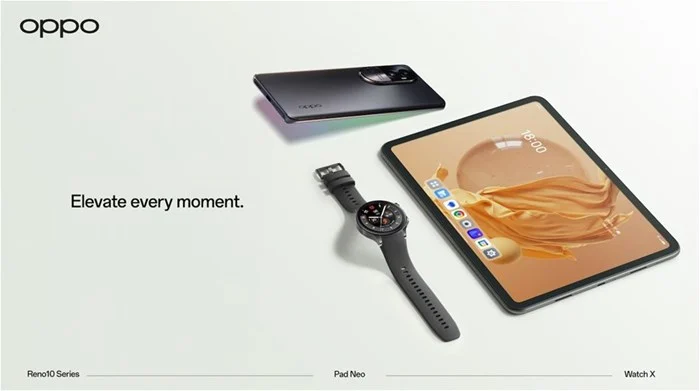Oppo To Introduce IoT And AI Product Ecosystem To South Africa

Oppo To Introduce IoT And AI Product Ecosystem To South Africa. Oppo, a leading global smart device brand, is excited to announce its focus on the internet of things (IoT) ecosystem with its products for 2024 in the South African market. For those new to the concept, IoT refers to the interconnected network of physical devices that can collect and exchange data, enabling smart and automated user experiences. This initiative is set to redefine connectivity and innovation in the region, aligning with Oppo’s vision of a seamlessly connected world.
As part of this venture, Oppo plans to launch a wide array of smart devices, including but not limited to wearables, headphones, tablets, and more, designed to foster an intelligent lifestyle accessible anytime, anywhere. These devices will be integrated through Oppo’s cohesive IoT platform, designed to offer users a unified, intuitive experience.
Oppo’s dedication to the IoT ecosystem further enriches its commitment to Artificial Intelligence (AI). Infusing AI into the IoT platform is a strategic move to ensure that Oppo’s smart devices, from wearables to tablets, are interconnected but also intelligent and responsive. Integrating AI with IoT paves the way for linked devices capable of learning and adapting to users’ habits and preferences, providing a truly personalised experience.
AI has long been a core area of investment and development for Oppo, and the company is now taking a number of steps to elevate AI to the core of its long-term growth strategy. On February 20, Oppo established the Oppo AI Centre — a new hub designed better to focus the company’s resources towards R&D in AI and drive cutting-edge, user-centric exploration of technology and applications that aim to bring the benefits of AI to everyone.
With this focus on AI, Oppo wants to take its global innovation and vision to various markets, including Africa. “South Africa is a vibrant market with a keen appetite for technological advancement and innovation,” said Liam Faurie, head of go-to-market at Oppo South Africa. “Our IoT ecosystem is tailored to meet the unique needs of this market, providing cutting-edge technology that enhances the lives of our consumers.”
Focused on a friendlier and more accessible customer experience, Oppo’s IoT strategy is tailored to meet the dynamic needs of South African consumers, ensuring connectivity and innovation are at the forefront of everyday life. Faurie says, “At Oppo, we see ourselves as partners in our customers’ digital journey. Our role extends beyond merely selling smartphones to offer a gateway to a smarter, more connected lifestyle. Our IoT ecosystem has been developed with this vision in mind, aiming to enrich the lives of our customers in personal entertainment, health, and sports.”
Coming in this month will be its new IoT products, which will include its highly anticipated Watch X, powered by Google Wear OS featuring Sapphire Glass, a 12-day battery life, SuperVOOC™ charging, and interchangeable straps. These products exemplify the seamless integration of AI, offering not just smart devices but a smart way of living.Oppo’s IoT ecosystem is designed to promote a smarter lifestyle, encouraging seamless interaction between devices for enhanced productivity and entertainment. With a strong emphasis on R&D, Oppo aims to incorporate advanced technologies such as AI to further enrich user experiences.




